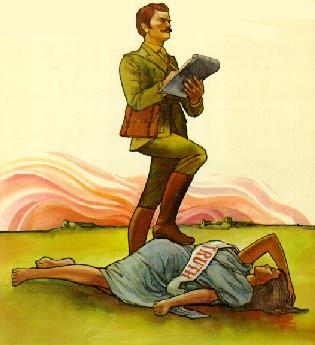Corporate Lobbyists and Public Relations Firms behind Cable News Outlets

Since 2007, at least 75 registered lobbyists, public relations representatives and corporate officials have appeared on cable news broadcasts “with no disclosure of the corporate interests that paid them,” The Nation magazine (March 1) reveals.
Many of these people are “paid by companies and trade groups to manage their public image and promote their financial and political interests,” writes the magazine’s Sebastian Jones, a freelance reporter after a four-month-long probe.
“Many have been regulars on more than one of the cable networks, turning in dozens—and in some cases hundreds—of appearances,” Jones reports.
For example, Tom Ridge, identified as the former governor of Pennsylvania, appeared on MSNBC’s Hardball With Chris Matthews urging the White House to “create nuclear power plants.” What viewers were not told, though, is that Ridge since 2005 has pocketed $530,659 in executive compensation for serving on the board of Exelon, the nation’s biggest nuclear power company, Jones writes.
On the same day, last Dec. 4th, retired general Barry McCaffrey, told MSNBC viewers the war in Afghanistan would require a three-to-ten-year effort and “a lot of money.” Unmentioned, Jones says, was the fact DynCorp paid McCaffrey $182,309 in 2009 alone and that DynCorp has a five-year, $5.9 billion deal to aid U.S. forces in Afghanistan.
Jones describes MSNBC as “the cable network with the most egregious instances of airing guests with conflicts of interest.” He notes, “Only on MSNBC was a prime-time program, Countdown, hosted by public relations operative Richard Wolffe and later by a pharmaceutical company consultant, former Governor Howard Dean, with no mention of the outside work either man was engaged in. And MSNBC has yet to introduce DynCorp’s Barry McCaffrey as anything but a ‘military analyst.'”
Moreover, last January 22nd, MSNBC’s Morning Joe audience saw Mark Penn, identified only as a Clinton administration pollster, suggest the Obama administration put healthcare reform on ice. Unmentioned, says Jones, was “Penn’s role as worldwide CEO of Burson-Marsteller, which has an entire healthcare division devoted to helping clients like Eli Lilly and Pfizer ‘create and manage perceptions that deliver positive business results.'”
Jones reports that what transpires on MSNBC also occurs on Fox News, Fox Business Network, CNN and CNBC. These outlets “eager to fill time and afraid of upsetting the political elite, have often looked the other way (and)at times…have even disregrded their own written ethics guidelines.” MSNBC may be the most flagrant example of deception but the other networks do not appear far behind.
During a Sept. 18, 2008, Fox News appearance to discuss Sarah Palin, Bernard Whitman, president of Whitman Insight Strategies—whose clients include marketing/PR firms like Ogilvy & Mather—lambasted Sen. John McCain for proposing to “Let AIG fail,” saying his position demonstrated “just how little he understands the global economy today.” Whitman’s “ongoing work” for AIG was not mentioned!
“When there’s a whole host of pundits on the airwaves touting the same agenda at the same time, you get a cumulative effect that shapes public opinion toward their agenda,” Janine Wedel, an anthropologist at George Mason University told Jones. Another academic, Jay Rosen, journalism professor at New York University, said, “More disclosure is good—I’m certainly in favor of that—but why are these people on at all?”
That’s a very good question. MSNBC, Fox, and the others guilty of deceptive journalism owe their viewers an apology. Such broadcasts are neither fair nor balanced. They are deceptive, slanted, and contrary to the public interest. The cable broadcasters need to pledge to their viewers to reveal the hidden corporate agendas of their guests. Until that time, viewers can always turn them off.
Sherwood Ross, formerly a reporter for the Chicago Daily News and wire service columnist, is a freelance writer. Reach him at [email protected]

